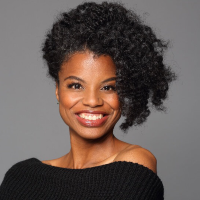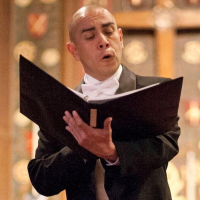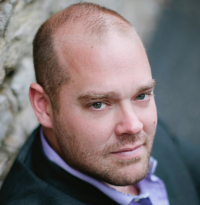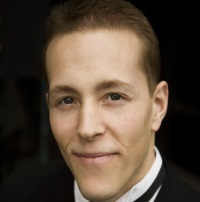Messiah
Saturday, December 18, 2021 • 2:30 p.m.
First Free Methodist Church (3200 3rd Ave W)
Sunday, December 19, 2021 • 2:30 p.m.
Bastyr Chapel (14500 Juanita Drive NE)
Harmonia Orchestra & Chorus
William White, conductor
Ellaina Lewis, soprano
José Luis Muñoz, countertenor
Brendan Tuohy, tenor
Ryan Bede, baritone
Program
George Frideric Handel (1685 –1759)
Messiah, HWV 56
About the Concert
A timeless classic and a Seattle tradition. Join us as we once again present the region’s only performances of Handel’s full and unabridged score.
Please note: Only the Saturday performance at First Free Methodist Church will be livestreamed. In-person tickets for the Saturday and Sunday performances are sold out.
Health and Safety
All in-person concert attendees age 12 and older will be required to provide proof of vaccination at the door (either a physical document or a photograph thereof) and all in-person attendees must wear a mask. Children ages 5–11 may attend only if they are masked and accompanied by a parent or guardian.
Programs and artists are subject to change. Harmonia reserves the right to alter its policies throughout the season in accordance with updated health guidelines.
About the Soloists

Soprano Ellaina Lewis demonstrates an extensive range of vocal and dramatic ability. Originally from Washington, D.C., she now makes her home in Seattle. In addition to Seattle Opera, where she sang the role of Strawberry Woman in Porgy and Bess, she has performed with Puget Sound Opera, Tacoma Opera, Seattle Choral Company, Everett Philharmonic, Sammamish Symphony, ArtsWest, Northwest New Works Festival, NOISE (Northwest Opera in Schools, Etc.), Ladies Musical Club, Cascade Symphony and Pacific Northwest Ballet School. Ms. Lewis has sung Violetta in Verdi’s La Traviata, Amina in Bellini’s La Sonnambula, Monica in Menotti’s The Medium, the title role in Scott Joplin’s Treemonisha, Erzulie in Flaherty’s Once on This Island, Pamina in The Magic Flute and Gertrude in Hansel and Gretel. Concert engagements include Haydn’s Creation, Mozart’s Exsultate Jubilate and Villa Lobos’ Bachianas Brasileiras No. 5. Ms. Lewis has on many occasions blended her love of singing and her passion for dance, collaborating with S.D. Prism Dance Theater and contributing vocal improvisations as dancers interpret the choreography of the company’s founder, Sonia Dawkins. Among her premieres are the title role in Sally Hemings (an opera and film production by Garrett Fisher) and the role of Simona in Night Flight with Book-It Repertory Theatre.
- Learn more: lainalousoprano.com

Countertenor José Luis Muñoz has been described as “a fabulous countertenor” with “amazing, powerful expression.” He has premiered principal roles in Juana (San Francisco), Monticello Wakes (Los Angeles), Yoshinaka (Seattle), Kakitsubata (Köln) and Magda G (for which he was featured in the Los Angeles Times). In concert he has sung Handel’s Messiah, Mozart’s Requiem and Missa Brevis K. 275, Bach’s Mass in B minor, Orff’s Carmina Burana and Bernstein’s Missa Brevis. He has appeared with Opera Southwest, Musikpunkt Köln, Portland Symphonic Choir, City Opera Ballet, Seattle Early Music Guild, E.O.S. Opera (Germany), Federal Way Symphony, Washburn Symphony (Topeka), San Francisco Baroque Opera, First Congregational Church Music Series (Berkeley), Mission Cultural Center (San Francisco), Theater Artaud (San Francisco), Foro Cultural Coyoacanense Hugo Argüelles (Mexico) and the Ludinghaüsen Summer Art Festival (Germany). This season he sings Don Quijote in the U.S. premiere of Mauricio Sotelo’s Dulcinea and returns to Opera Modesto to sing The Owl in Hector Armienta’s Bless Me, Ultima. Mr. Muñoz is a soloist at Epiphany Episcopal Church in Seattle and teaches voice, piano and viola.
- Learn more: joseluismunoz.com

Tenor Brendan Tuohy has been praised by The Cincinnati Post for his “big, bold tenor edged with silver,” and he continues to move audiences both in the U.S. and overseas. Recent appearances include Nemorino in L’elisir d’amore with Tacoma Opera, David Lang’s The Little Match Girl Passion with Eugene Opera, and the role of Rent-a-Cop in the world premiere of Evan Mack’s Yeltsin in Texas. In 2018 he returned to the Grant Park Music Festival to sing Haydn’s Theresienmesse, following a 2017 performance of Beethoven’s Ninth. Other engagements have included Rachel Portman’s The Little Prince with Opera Theater Oregon, Haydn’s The Seasons and Handel’s Messiah with Harmonia, Britten’s War Requiem at the University of Washington, and the iSing International Music Festival in Suzhou, China. He has performed on the opera stage at Eugene Opera, City Opera Bellevue, Vashon Opera and Berlin Opera Academy, and in concert with the Oregon Symphony, Seattle Symphony, Pacific MusicWorks and Symphony Tacoma. Mr. Tuohy completed his academic training at the University of Cincinnati College-Conservatory of Music with a master’s degree in vocal performance. In 2008, he had the honor of singing and competing in the Metropolitan Opera National Council Semi-Finals in New York City.
- Learn more: brendan-tuohy.com

Baritone Ryan Bede made his Seattle Opera solo debut in The Magic Flute during May 2017, followed by Prince Yamadori in Madama Butterfly, Jim Crowley in An American Dream, Fiorello in The Barber of Seville and Moralès in Carmen, as well as the Jailer in Dan Wallace Miller’s film version of Tosca in May 2021. For the 2021–2022 season he returns to Opera Idaho for its inaugural “Opera in the Park” and in An American Dream. In October 2019 he made his role debut as Belcore in The Elixir of Love with Tacoma Opera, where he has appeared in numerous roles, such as Moralès/Le Dancaïre in Carmen, Tiger Brown in _The Threepenny Opera, Papageno in The Magic Flute, Mercutio in Roméo et Juliette, Schaunard in La Bohème and the Pirate King in The Pirates Of Penzance. Recent concert engagements have included Handel’s Messiah with the Bremerton Symphony and Federal Way Symphony, Spectrum Dance Theater’s acclaimed production of Carmina Burana and Bach’s Christmas Oratorio with Early Music Vancouver/Pacific MusicWorks, as well as the Fauré and Duruflé Requiems, Haydn’s Die Jahreszeiten and Carol Sams’ The Earthmakers with Harmonia. Mr. Bede holds degrees from University of Puget Sound and the University of Washington, and is now pursuing a DMA at the UW.
- Learn more: ryanbede.com
Maestro’s Prelude
Dear listeners,
Welcome to Harmonia’s annual performances of Handel’s Messiah! Whether you’re an inveterate Messiah attendee or you’re completely new to the work, I hope that the glory of this oratorio will be revealed to you in all its beauty, subtlety and splendor.
In this season of giving, I’m so grateful that we are once again able to share the gift of music with you, our community. Our 2021–2022 season theme is “Renewal,” and with these performances we’re renewing a Seattle tradition that stretches back to the 1970s. I’ve had the great good fortune to talk to many of you who have attended our Messiah concerts for decades, and knowing how much this music means to you has only added to its richness for me.
Harmonia has a special history with Messiah. We have a whole page devoted to it in this program (which you should read!) but I can sum it up by saying that you will never encounter a group of musicians who love this music more than our singers and instrumentalists. You might think they’d get tired of it, but it’s entirely the opposite: every year, they delve further into its intricacies, and they keep the music fresh with their open-minded approach.
Our relationship with this music took another turn this past May, when the lockdowns finally lifted and it once again became possible to come together and perform. We convened our chorus and orchestra outdoors in a church parking lot, and we sang and played Messiah for the sheer joy of making music. (And, one hopes, for the delight of the neighbors.) It was the first step in putting our community back together, and an experience I’ll never forget.
Now we find ourselves again performing Messiah in its proper place in the concert season, and it’s imbued with extra meaning and energy. Handel’s music seems to have shimmered even more resplendently than usual this year. At least that’s how it’s been for me, and I hope it feels that way for you this afternoon.
William White
P.S. For those of you joining us today because of a particular love for lengthy Baroque oratorios, I’d be remiss if I didn’t draw your attention to another Harmonia tradition that’s about to be renewed: our March 13 performance of J.S. Bach’s St. Matthew Passion (a 2020 project put on hold by the pandemic). Harmonia has had much company in presenting Messiah over the past four decades, but no ensemble in the region has performed St. Matthew Passion as often as we have — this will be our 13th time, and an event that you won’t want to miss. If our Messiah turnout is any indication, tickets are likely to go fast, so get yours today!
P.P.S. We hope you’ll also join us for our other 2022 concerts: a fabulous orchestral program on February 5 and our gala season finale at Benaroya Hall on April 24.
Program Notes
George Frideric Handel
Messiah, HWV 56
Handel was born in Halle, Germany, on February 23, 1685, and died in London on April 14, 1759. He composed Messiah between August 22 and September 14 of 1741. The oratorio was first performed in Dublin on April 13, 1742, under the direction of the composer. In addition to a quartet of vocal soloists and choir, the work calls for 2 oboes, bassoon, 2 trumpets, timpani, harpsichord and strings.
Handel, renowned in his day as an organist and as a highly prolific writer of Italian operas and English oratorios, was born in Germany in 1685 about a month before J.S. Bach. He received his musical training in Italy, and later became 18th-century England’s “national composer.” Between February and November 1741, Handel — suffering at the age of 56 from various ailments, both financial and physical — withdrew increasingly from public life. At some point that year, the composer received from the Lord Lieutenant of Ireland and the governors of Dublin’s three major charitable institutions an invitation to travel to that city to aid the charities through the performance of his music. Handel was well known in Dublin as a church-music composer, and his works were often played there to benefit charities. It may thus have been this invitation that provided the incentive for Handel to compose “a new sacred Oratorio.” In July of 1741, Charles Jennens, who was responsible for the texts of Handel’s oratorios Israel in Egypt and Saul, gave the struggling Handel the libretto of Messiah, a compilation of biblical texts from both the Old and New Testaments.
On August 22, Handel began to set Jennens’ text to music. He finished the first part of his new oratorio (which deals with the prophecy of Christ’s coming and his nativity) in six days, the second part (which describes Jesus’ suffering, death, resurrection, and ascension, the spread of his gospel, the resistance of the heathen, and the vision of the ultimate triumph of the gospel in the establishment of God’s kingdom) in nine days, and the third part (which celebrates the gift of resurrection and eternal life offered to all through Christ’s victory over death) in six more days, with two or three additional days for completing the orchestration. Regarding Handel’s state of mind during Messiah’s composition, biographer Jonathan Keates observes in his 1992 book Handel: The Man and Music that “etherealized visions of the elderly master refusing food, weeping into the semiquavers and having angelic hallucinations are mostly moonshine.”
In the autumn of 1741, Handel accepted the invitation to visit Dublin, arriving there on November 18 with the completed score of Messiah in his traveling bags, but it was not until April 13, 1742, that the oratorio received its premiere. Seven hundred people were able to squeeze into Dublin’s Musick Hall in Fishamble-street to hear the work performed by the choirs of Dublin’s two cathedrals (totaling fewer than 40 men and boys) and the string band (reinforced occasionally by trumpets and timpani — oboe and bassoon parts were written later), all directed from the keyboard by Mr. Handel himself. The work created a sensation: “Words are wanting to express the exquisite Delight it afforded to the admiring crouded Audience,” exulted Faulkner’s Journal. “The Sublime, the Grand, and the Tender, adapted to the most elevated, majestick and moving Words, conspired to transport and charm the ravished Heart and Ear.” Handel divided his share of the proceeds (about £400), as did the other performers, among Dublin’s three most important charities.
Messiah is unique among Handel’s works, being his only biblical oratorio using texts from the New Testament, and his only “Christian-contemplative” oratorio. Although the text is not a dramatic narrative but an epic-lyric poem celebrating Christian redemption, Handel’s musical approach in setting Jennens’ libretto was decidedly dramatic. The work’s three parts recall the three acts of Italian operas, and the oratorio is indeed a piece designed by a seasoned operatic professional to “entertain,” in the best sense of the word, listeners in a concert room, not chiefly to instruct or edify a congregation or to be used in any sort of worship.
Handel synthesizes the best elements of the three musical traditions in which he was steeped: the Italian, the German and the English. He makes use of Italian forms of musical expression, borrowing, rearranging and transforming into “duet-choruses” (such as “And he shall purify”) some passages from his own Italian love duets. In the “Pastoral Symphony” (entitled Pifa) that introduces the shepherds, Handel alludes to the music of the pifferari, the country bagpipers who descend the Italian mountains during the Christmas season to play in village streets. Handel employs German musical ideas, particularly in the music describing Jesus’ suffering and death, where the jagged dotted rhythms and forceful harmonies have a particularly German expressive quality. In that great “coronation march,” the “Hallelujah Chorus,” melodic fragments echoing the German chorale “Wachet auf” may be heard in “The kingdom of this world” and in “And he shall reign for ever and ever.” Handel’s melodic shapes, vocal treatment, grand anthem-like choruses, and text-setting display the “English character” that has ensured Messiah’s unchallenged supremacy in the English choral repertoire: in such arias as “He was despised” and “I know that my Redeemer liveth,” the rhythms of the music grow out of the natural speech rhythms of the words, so that the music expresses the text directly and powerfully, and then illustrates it almost visually (e.g., “Every valley shall be exalted,” “The people that walked in darkness,” and “All we, like sheep”).
The easy accessibility and glorious variety of the music that results from the confluence of these elements (and which often conceals the exalted art underlying it) has helped to guarantee Messiah’s survival, through a seeming infinitude of “arrangements,” versions and types of presentation, as one of the most popular pieces ever composed. As R.A. Streatfeild observes, “Messiah, if not Handel’s greatest work, is undoubtedly the most universal in its appeal” because it continues to sing to “high and low, rich and poor, wise and foolish alike” a magnificent song of salvation, fresh, vital and full of aesthetic and spiritual grace.
— Lorelette Knowles
Harmonia and Messiah
The Seattle Chamber Singers first presented (the Christmas portion of) Messiah in December 1970, on a holiday program that included the world premiere of a cantata by the group’s founder, George Shangrow. In those early years George led annual sing-along Messiahs at University Unitarian Church, a tradition that began in 1969. And in 1975 he played harpsichord (“superbly,” according to The Seattle Times) in a Seattle Symphony performance of the work.
The following year George (described as a “young man of much hair” by a Times reviewer) conducted the first complete SCS Messiah, billed as “almost a duplicate of the first performance of Messiah as Handel first heard the work” and the Seattle premiere of this “Dublin version” of the score. KUOW-FM broadcast the concert live from Meany Hall and the Times critic praised the “crisp, clean, good sound, a chorus together in joyous harmony.”
The group presented presented Messiah almost every season that followed — except for 1983, 1985 (the Bach Year), 1993 and 1996 — until George’s death in 2010. The ensemble performed it that year in tribute to its founder, but took a break for the next two seasons, returning to the work during Clinton Smith’s first year as music director. Will White has continued this tradition.
One decision the conductor of any Baroque oratorio must make is which keyboard instrument(s) to use for the continuo section of the orchestra: organ, harpsichord, both? The earliest SCS performances generally featured a single harpsichord, invariably played by composer and keyboardist Robert Kechley, a founding member of the group. In 1984 he was joined by a second harpsichordist, but then continued solo until 1990, when George began playing and conducting from a second harpsichord, much as Handel himself would have done.
In 1998, the organization (with support from the PACCAR Foundation, King County Arts Commission, Visio Corporation and other generous donors) commissioned Michael Reiter of Tacoma to build a pair of instruments for use in Messiah and other Baroque works. Starting from kits made by Hubbard Harpsichords of Massachusetts, he created two instruments modeled on the French double-keyboard harpsichords of the 18th century. One contains three choirs of strings, while another has four sets of jacks instead of three. The first made its debut at our 1999 Messiah, and was joined by its companion the following year.
George and Bob played these harpsichords for Messiah thereafter until George’s death, when this practice subsided. Our orchestra continued to employ one of the instruments for Baroque works, while the other has resided at Benaroya Hall in recent years, used by the Seattle Symphony and distinguished guest artists for many of their Baroque performances (along with some 20th- and 21st-century works requiring harpsichord).
In 2019, Seattle-based harpsichord builder David Calhoun overhauled both instruments to his exacting specifications and we welcomed Bob Kechley back to the keyboard for our Messiah concerts, sitting opposite Will White at the second harpsichord. We are also grateful to Jeffrey Cohan, who has overseen the care, transportation and tuning of these instruments for many years.
